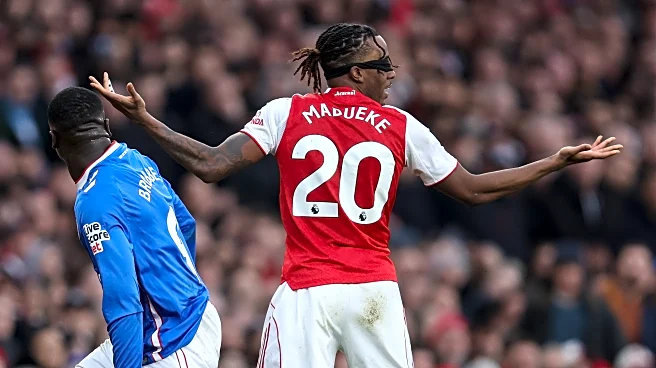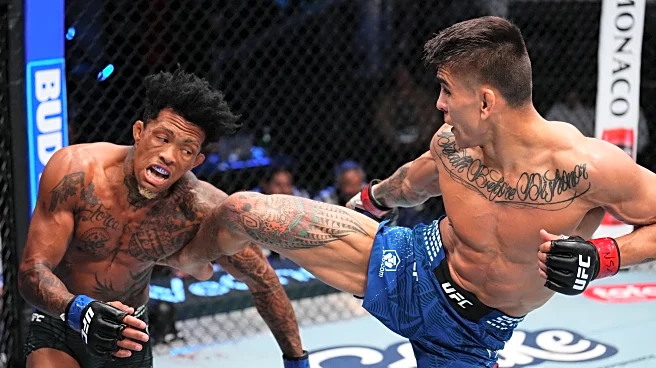Rapid Read • 8 min read
Nvidia CEO Jensen Huang has emerged as a significant figure in U.S. President Donald Trump's tech strategy, overshadowing previous tech allies like Elon Musk and Tim Cook. Huang's influence is largely attributed to Nvidia's leadership in AI chip development, which has positioned him as a pivotal player in U.S.-China tech relations. Recently, Huang announced that Nvidia would resume sales of its H20 AI chips to China, a move approved by the U.S. government. This decision comes despite concerns in Washington about the potential military applications of these chips in China. Nvidia had previously written off $4.5 billion in unsold inventory due to U.S. export bans. Huang has been vocal against these restrictions, arguing that they encourage Chinese companies to develop alternatives, potentially undermining U.S. tech dominance.
AD
Huang's growing influence highlights a shift in the U.S. tech landscape, where Nvidia's dominance in the AI chip market is becoming increasingly critical to national security and global tech leadership. His alignment with the White House's AI and crypto policies further cements his role as a key advisor to President Trump. This development could have significant implications for U.S. tech policy, particularly in relation to China. By resuming chip sales to China, Nvidia not only recovers financially but also strengthens its position in the global market. However, this move raises questions about the balance between economic interests and national security concerns, especially as the U.S. seeks to maintain its technological edge over China.
As Nvidia continues to navigate the complex U.S.-China tech landscape, further developments are expected in terms of policy adjustments and potential tariffs on the semiconductor industry. Huang's influence may lead to more strategic decisions that align with U.S. interests while maintaining Nvidia's market leadership. The ongoing semiconductor industry probe could also impact Nvidia's operations, particularly if tariffs are imposed. Stakeholders, including political leaders and industry analysts, will be closely monitoring these developments to assess their impact on the broader tech ecosystem.
Huang's rise as a tech ally to President Trump underscores the evolving dynamics of U.S.-China relations, where technology plays a central role. This situation also highlights the ethical and strategic considerations of engaging with China in the tech sector, as companies like Nvidia balance commercial interests with geopolitical realities. The long-term implications of these decisions could reshape the global tech landscape, influencing how countries approach technology development and international collaboration.
AD
More Stories You Might Enjoy











